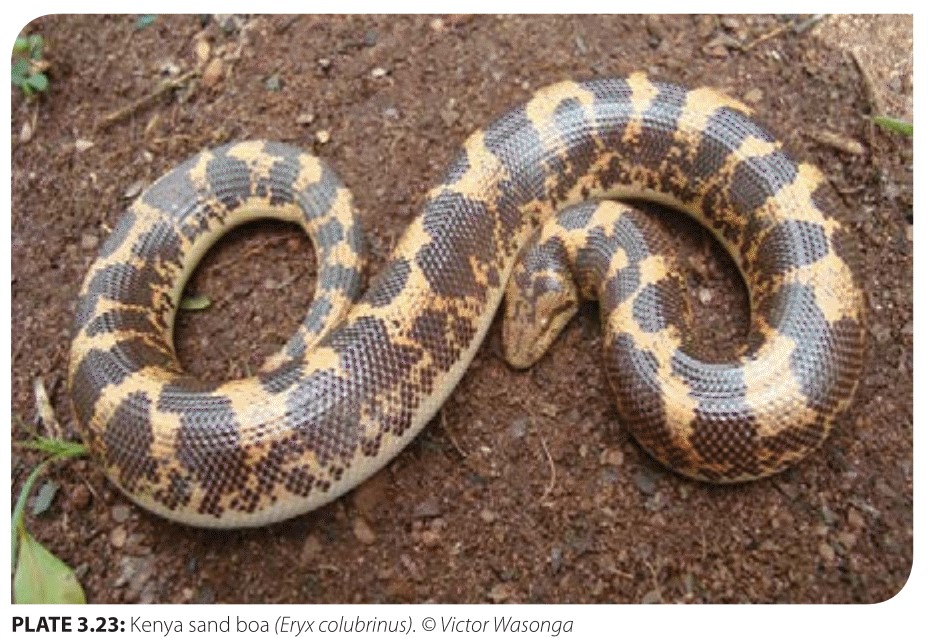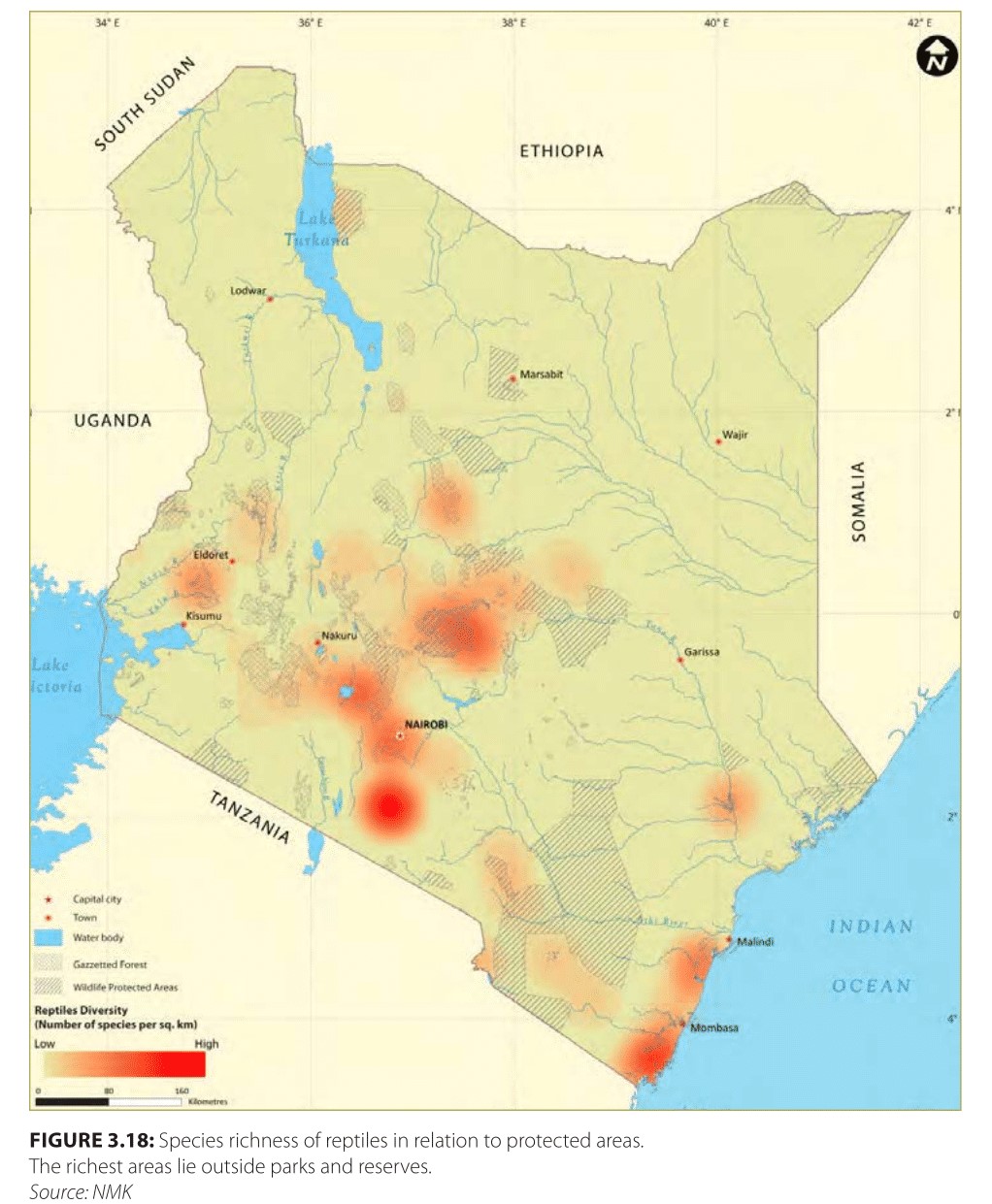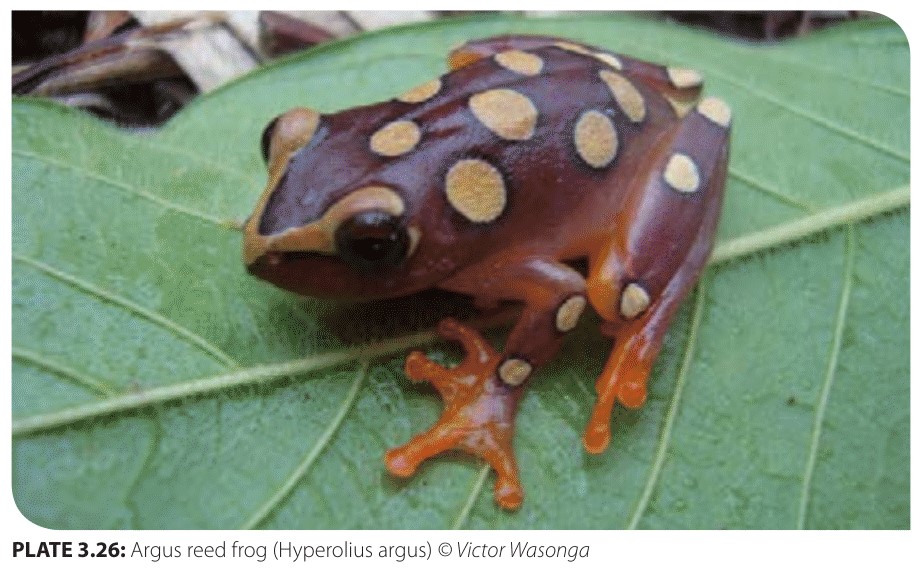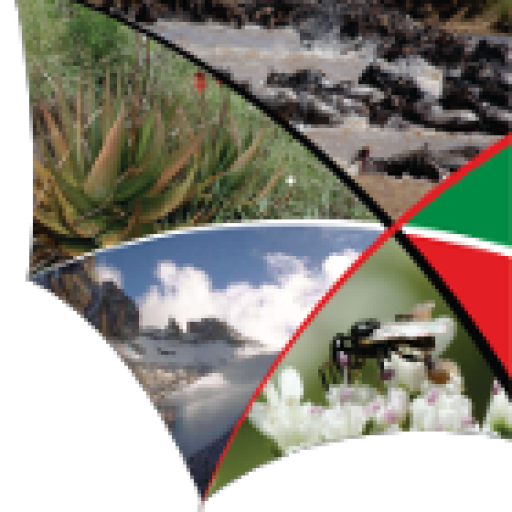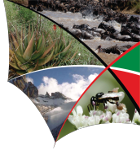Reptiles and Amphibians
Kenya has over 220 reptile species, including 100 snakes, 100 lizards, 5 marine turtles, 5 tortoises, 5 terrapins and 1 crocodile. The centre of reptile richness in Kenya runs in an arc of habitats ranging from the coastal forests, though the bushes and grassland savannahs of the Kenya–Tanzania borderlands, and into the Rift Valley.
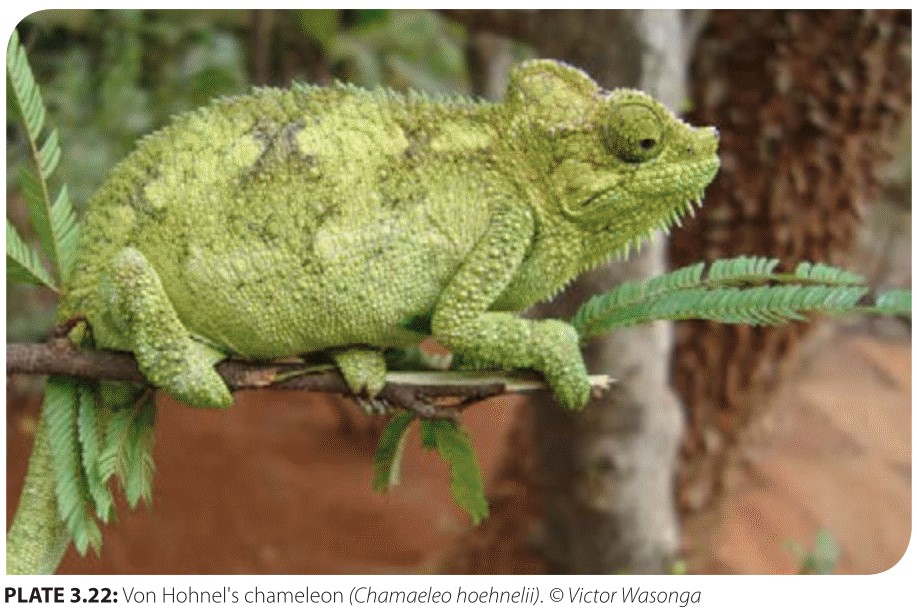
The distribution patterns of snakes and lizards are broadly similar, and point to the fact that the cold-blooded vertebrates prefer warmer lower altitudes but all latitudes on a global scale are suitable.
Amphibians are associated with wetter habitats and tree-frogs mostly with forest and mountain areas. Reptiles and amphibians in Kenya have not received as much taxonomic attention as other vertebrates, so large gaps still occur in specimen collection, mapping, and behavioural and ecological studies.
